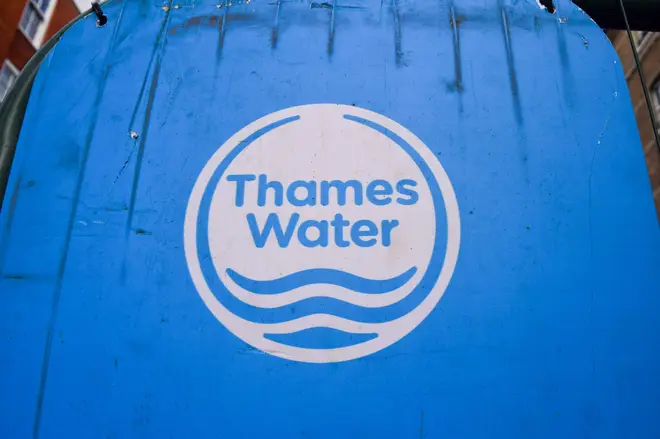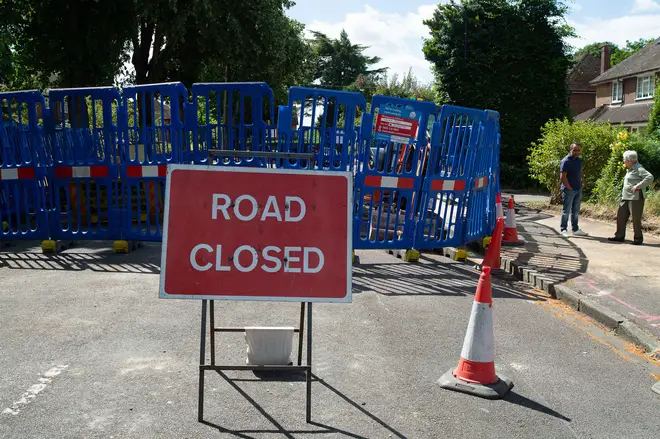July 9, 2024, 6:59 p.m
Mr Weston was paid £195,000 after his appointment in January.
Image: Alamy
The chief executive of Thames Water has defended his bonus package despite the company’s mounting debt and rise in sewage leaks.
Chris Weston said his bonus was based “purely on performance” and the claimed rewards for senior staff were needed “to attract the right talent”.
Britain’s biggest water company was responsible for 16,990 sewage discharges last year, compared to 8,015 in 2022, while serious pollution rose from 331 to 350 in that time.
It also comes as the company warned on Tuesday that it will run out of cash by the end of May next year due to its mounting debt and dwindling cash reserves, with its efforts to secure new funding intensifying.
Thames Water’s bonus payments were revealed in full-year results on Thursday and showed Mr Weston received £195,000 following his appointment in January, bringing his total pay to £437,000 for the three months to the end of March.
Alastair Cochran, Thames Water’s chief financial officer, received a £446,000 bonus after previously joining as the company’s interim co-chief executive.

Mr Weston was paid £195,000 after his appointment in January.
Image: Getty
Asked about executive bonuses on Tuesday, Mr Weston said: “You have to be able to attract the right talent, the best talent, to the company and to go hand in hand with that is an appropriate remuneration package.”
Thames Water is creaking under a debt pile of more than £15bn and said on Tuesday it had cash reserves of £1.8bn at the end of June, down from £2.4bn three months earlier.
The firm said it was still seeking new funding needed to maintain and update its infrastructure after investors pulled out £500m of emergency cash earlier this year.
Mr Weston said Thames had carried out “informal surveys which showed there was interest in the market”.
He added that the company would seek a “broad church” of potential investors, which could include existing shareholders.
If it ultimately fails to attract new funding, Thames Water’s frayed finances could present Sir Keir Starmer’s newly elected Labor government with a significant industrial crisis.
According to reports, a plan code-named Project Timber was being drawn up in Whitehall in the spring, which would effectively nationalize the company.
Under the plans, the company would be placed in a form of special administration in the event that its parent company goes bankrupt.
Weston added that it was “not in the interest” of customers or investors for the company to fall into government hands.
Communities Minister Jim McMahon said on Tuesday morning: “We recognize that over the last 14 years, frankly, the water industry has not been regulated nearly as tightly as it should be and we haven’t seen the investment to address it. with the sewage scandal.”
He said there was a need for reform and regulation to be considered, adding: “The days of shareholder interest being put before the national interest, frankly, cannot continue, so we need to look at that and Thames needs them to look at their own the house and put it in order.”

Thames Water’s tattered finances could plunge Sir Keir Starmer’s government into a major industrial crisis.
Image: Alamy
Mr McMahon said there was “no nationalization program for the water industry” when asked what the plan was if the company collapsed.
But he said “there is no provision in the law that the water company will stop supplying water”, adding: “We have to be clear that there is always some unpredictability.”
Thames Water’s financial update will be followed on Thursday by Ofwat’s draft verdict on the water companies’ five-year spending plans and bill increases up to 2030.
This will begin six months of negotiations with Ofwat, before a final decision in December.
Thames Water, which has 16 million customers in London and the Thames Valley region, unveiled plans in April to boost spending to £19.8 billion to upgrade infrastructure and reduce sewage leaks.
But that would also mean a 44 percent increase in customer bills, a number that has drawn opposition from consumer groups.
Meanwhile, the process of securing new cash is “not expected to be completed” before Ofwat makes a final decision on Thames’ business plan in December.

Thames Water faces financial crisis ahead of Ofwat accounts decision.
Image: Alamy
Read more: Jeremy Hunt says he is ‘very angry’ at Thames water and asks bill payers to ‘save’ them by raising bills
Read more: Thames Water to increase your water bills by 44% as it struggles to survive under billions of pounds of debt
Any increase in bills would be met with anger after the disastrous recent environmental records of Thames Water and other water companies sparked a national pollution scandal.
Thames said pollution cases had risen to 350, up from 331 last year, which it blamed on a wetter-than-expected year.
The number of “serious pollution” has fallen by 18 per cent, Thames Water said.
When asked about the issue on Tuesday, Mr Weston said: “You may not like the answer, but rain has a big effect on spills.”
It comes amid reports that Sir Keir has been told that the poor state of Thames Water’s physical infrastructure poses a “critical risk” to the country.
Concerns about the company include its management of sites that provide drinking water and sewage treatment for London and the Thames Valley, The Guardian newspaper reported.
Thames Water said it spent £2bn last year maintaining and updating its infrastructure.
The prime minister’s official spokesman told reporters on Monday: “The government has said in its policy statement that we will put failing water companies into special measures and they will have no choice but to clean up their act.
“We’ve talked about giving regulators the power to block bonus payments to executives who pollute our waterways and to impose automatic and stiff fines on them for wrongdoing.”

